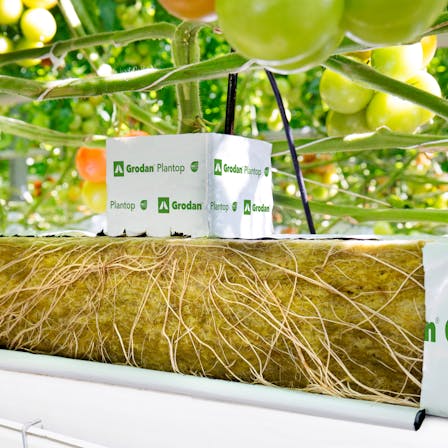Our Thinking Stories
Discover what our thinking is about
Discover what our thinking is about
Do you want to learn more about Grodan? Feel free to sign up to our newsletter. Grodan ensures that growers can make optimum use of its products and services by interpretting the company’s knowledge of and experience with substrate cultivation in terms of up-to-date, crop-oriented advice. Ranging from tailor-made advice from crop consultants to newsletters, seminars and training courses and articles in trade journals.

At the ROCKWOOL Group, we are committed to enriching the lives of everyone who comes into contact with our solutions. Our expertise is perfectly suited to tackle many of today’s biggest sustainability and development challenges, from energy consumption and noise pollution to fire resilience, water scarcity and flooding. Our range of products reflects the diversity of the world’s needs, while supporting our stakeholders in reducing their own carbon footprint.
We are a global leader in the supply of innovative stone wool substrate solutions for the professional horticultural based on Precision Growing principles.
We provide customers with a complete ceiling system offer, combining panels with suspension grid systems and accessories.
We manufacture board material mostly used in ventilated constructions, for façade cladding, roof detailing, soffits and fascias.
We develop innovative products used in a wide range of applications, including friction, tracks, coatings, and gaskets.
We are a global leader in the supply of innovative stone wool substrate solutions for the professional horticultural based on Precision Growing principles.